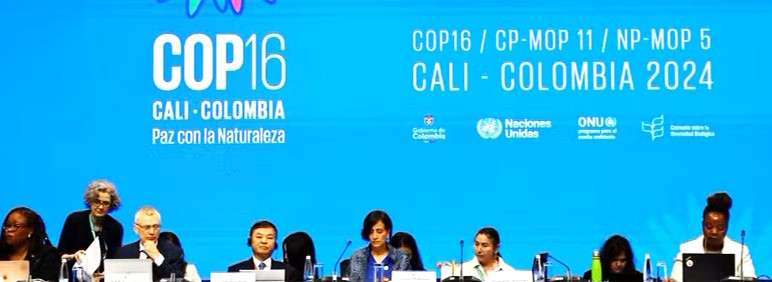Opened on October 21, and scheduled to end on November 1, the Conference of the Parties to the United Nations Convention on Biological Diversity has finally extended until Saturday, November 2, 2024. And despite this extension, COP16 in Cali did not achieve all its objectives.
Questioned by Panama, Susana Muhamed, Colombian Minister of the Environment and President of COP16, noted that the quorum required to continue negotiations was no longer there. Most of the delegates had run to catch their return flight, after a sleepless night spent in plenary. She declared, not without bitterness, that the negotiations were suspended.
To what end?
By suspending the negotiations, Susana Muhamed also acknowledged that it made the UN's potential to address the nature crisis that threatens humanity's prosperity weaker and slower. However, some progress had nevertheless been made, including:
Enhanced status of indigenous peoples: On 1 November 2024, the world's indigenous peoples were granted enhanced status in the United Nations negotiations on biological diversity (biodiversity). To this end, a permanent group for the representation of indigenous peoples and local communities has been established within the United Nations Convention on Biological Diversity (CBD). These peoples had demanded recognition of their role as guardians of nature
The adoption of a text on the recognition of "Afro-descendants"
The establishment of a multilateral fund that aims to share with developing countries the benefits made by companies thanks to the digitized genome of plants and animals from their territories.
While the above-mentioned progress has been achieved, it should be noted that negotiations have failed to achieve the main financial objective of increasing global spending to $200 billion per year by 2030 to save nature, including thirty billion in aid from rich countries. To achieve this objective, the Colombian presidency of COP16 presented a roadmap that included the creation of a new fund for nature, which is rejected by countries, which are hostile to the multiplication of multilateral development aid funds.
Discussions had also failed on the mechanism for monitoring the commitments made by the 196 signatory countries of the Convention on Biological Diversity at the last COP15, in Montreal, Canada.
The failure of the negotiations in Cali raises concerns when we know that 75% of land and 60% of ecosystems are degraded. That more than a third of the world's tree species are threatened with extinction, that species are disappearing between 100 and 1000 faster than before human civilization.

